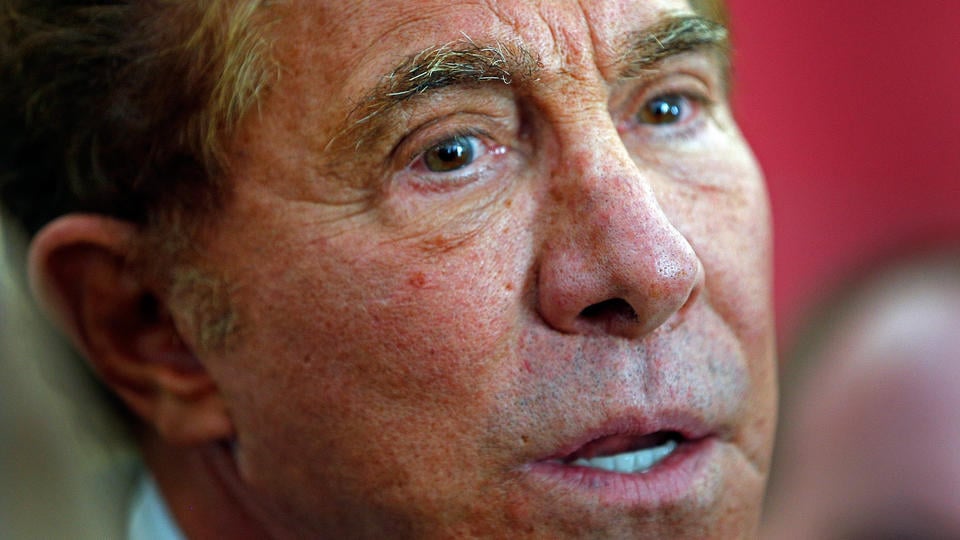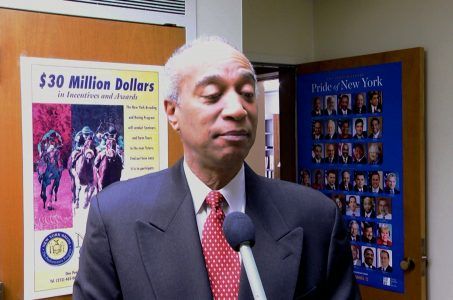Wynn Recommends Changes to Massachusetts Gaming Laws
Posted on: December 24, 2013, 05:30h.
Last updated on: December 24, 2013, 07:07h.

Steve Wynn still has a fight on his hands when it comes to getting a casino license for his proposed casino in Massachusetts, but that hasn’t stopped him from commenting on what the state should do with its current gaming laws. Wynn has suggested several changes to the state’s gaming regulations, including one that would benefit players greatly if it were passed.
Gaming Law 2.0
The suggestions from Wynn came during a visit to Boston two weeks ago, when he had a meeting with lawmakers about sections of the gaming law that could be revisited. Perhaps the most pressing one had to do with how gambling winnings were to be taxed – more specifically, the amounts over which casinos themselves would have to collect tax before gamblers even left the building.
At the moment, Massachusetts law asks casinos to force gamblers to pay state income tax on any winnings over $600 before they leave the casino. The idea isn’t unique: most states with casino or racetrack gambling have a threshold over which tax must immediately be collected, and even Native American-operated casinos usually do so for larger wins.
But the $600 threshold is now the lowest in the nation, beating out Iowa’s $1,000 standard and the $5,000 used in all other states (the same standard the federal government asks for in the collection of federal taxes). In addition, Massachusetts is one of just five states that requires this withholding on slot machine wins.
The Bay State isn’t the first to try a $600 withholding threshold. New Hampshire had the same level in 2009. But a limit that low comes with a number of serious problems – ones that caused the state to repeal that low threshold in 2011.
Losing Proposition for Gamblers
The problem is most notable when it comes to horse racing, where players may make multiple bets on a single ticket. If one bet shows $600 in profit while the others lose, the law still treats that as a $600 win – even if a player may have lost hundreds on the other bets on that same slip.
That law was costing players so much money that it ended up costing New Hampshire’s race track players – and eventually, when they left, the tracks themselves – so much money that the state was forced to make changes. Wynn says that a similar law in Massachusetts could cause gamblers to play for only small stakes, cashing out before they win any significant amounts of money, or avoid the casinos altogether. Similarly, a memo by the Massachusetts Gaming Commission’s director of racing, Jennifer Durenberger, suggested that the $600 threshold could already be having a negative impact on the proceeds from horse racing in the state.
While state officials are reluctant to reopen the gaming law – they’re concerned that doing so might restart the debate over whether Massachusetts should have expanded to casino gaming at all – there is some momentum to change this particular aspect of the regulations. According to some lawmakers, the tax threshold isn’t technically part of the gaming law itself, and might be able to be revised without looking at other aspects of gambling in the state.
However, lawmakers are less convinced that other parts of the law pointed out by Wynn need to change. Wynn also shared concerns over the required periodic review of casino licenses, as well as provisions dealing with the treatment of problem gamblers.
Related News Articles
New Jersey Casino Expansion? Not So Fast, Say New York Lawmakers
Most Popular
LOST VEGAS: ‘Tony The Ant’ Spilotro’s Circus Circus Gift Shop
Las Vegas Overstated F1 Race’s Vegas Impact — Report
Mega Millions Reportedly Mulling Substantial Ticket Price Increase
Las Vegas Strip Stabbing Near The Strat Leaves One Man Dead
Most Commented
-
End of the Line for Las Vegas Monorail
— April 5, 2024 — 90 Comments -
Mega Millions Reportedly Mulling Substantial Ticket Price Increase
— April 16, 2024 — 8 Comments -
Long Island Casino Opponents Love New York Licensing Delays
— March 27, 2024 — 5 Comments -
Smart Video Poker Players Hamper Casino Profits, Says Study
— March 21, 2024 — 4 Comments















